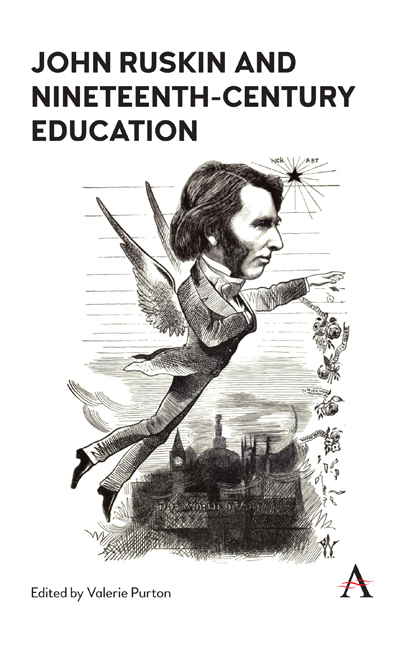Book contents
- Frontmatter
- Contents
- List of Figures
- Foreword
- Introduction
- Section A Changing the World
- Section B Libraries and the Arts
- Chapter 5 ‘A Very Precious Book’: Ruskin's Exegesis of the Psalms in Rock Honeycomb and Fors Clavigera
- Chapter 6 ‘Our Household Catalogue of Reference’: Ruskin's Lesson Photographs of 1875-76
- Chapter 7 Ruskin, Music and the Health of the Nation
- Chapter 8 Ruskin and the Fantastic
- Section C Christianity and Apocalypse
- Notes on Contributors
- Index
Chapter 6 - ‘Our Household Catalogue of Reference’: Ruskin's Lesson Photographs of 1875-76
from Section B - Libraries and the Arts
Published online by Cambridge University Press: 25 July 2018
- Frontmatter
- Contents
- List of Figures
- Foreword
- Introduction
- Section A Changing the World
- Section B Libraries and the Arts
- Chapter 5 ‘A Very Precious Book’: Ruskin's Exegesis of the Psalms in Rock Honeycomb and Fors Clavigera
- Chapter 6 ‘Our Household Catalogue of Reference’: Ruskin's Lesson Photographs of 1875-76
- Chapter 7 Ruskin, Music and the Health of the Nation
- Chapter 8 Ruskin and the Fantastic
- Section C Christianity and Apocalypse
- Notes on Contributors
- Index
Summary
Even the most ardent reader of Ruskin would probably admit that somewhere in the depths of the Library Edition is a piece of writing he or she has not looked at, and nowhere in Ruskin's writings would that be more likely than within Fors Clavigera, his ‘open letters to the Workmen and Labourers of Great Britain’ – workers, as in Ford Madox Brown's celebrated painting of Work, using brain as well as brawn – published not quite monthly between 1871 and 1884.
Many of the ideas and principles underpinning the establishment of the Guild of St George first appeared in Fors, along with other notions of education, both theoretical and practical, in the widest sense of the term. Indeed, as early as Letter 4 (April 1871), Ruskin pronounced, ‘We have, it seems, now set our opening hearts much on this one point, that we will have education for all men and women now, and for all boys and girls that are to be. Nothing, indeed, can be more desirable, if only we determine also what kind of education we are to have.’ What follows is an examination of what might well now be called ‘distance learning’, in which Ruskin introduced, not for the only time, a pioneering technique, offering a commentary on four reproductions of ancient and Old Master works of art, made available to his readers as photographs – ‘Lesson Photographs’ as he termed them – which could be obtained from his agent (and former Working Men's College pupil) William Ward.
A common theme is easily observed in these images, one that accords with a fundamental principle of the Guild, to be taught in its Museum, established in Sheffield only in 1875, and (at least as imagined by Ruskin) in its projected Schools – the sanctity of domestic harmony, centred here on the mother and child. In expanding this small footnote within Ruskin studies, a number of his typically idiosyncratic attitudes emerge, as so often in Fors, as he broadens what might seem like a random exercise in art history into thoughts on religion and society – ‘symbols of the laws of life’, as he put it. As always for Ruskin, art must earn its keep through meaning and moral.
- Type
- Chapter
- Information
- John Ruskin and Nineteenth-Century Education , pp. 101 - 114Publisher: Anthem PressPrint publication year: 2018



